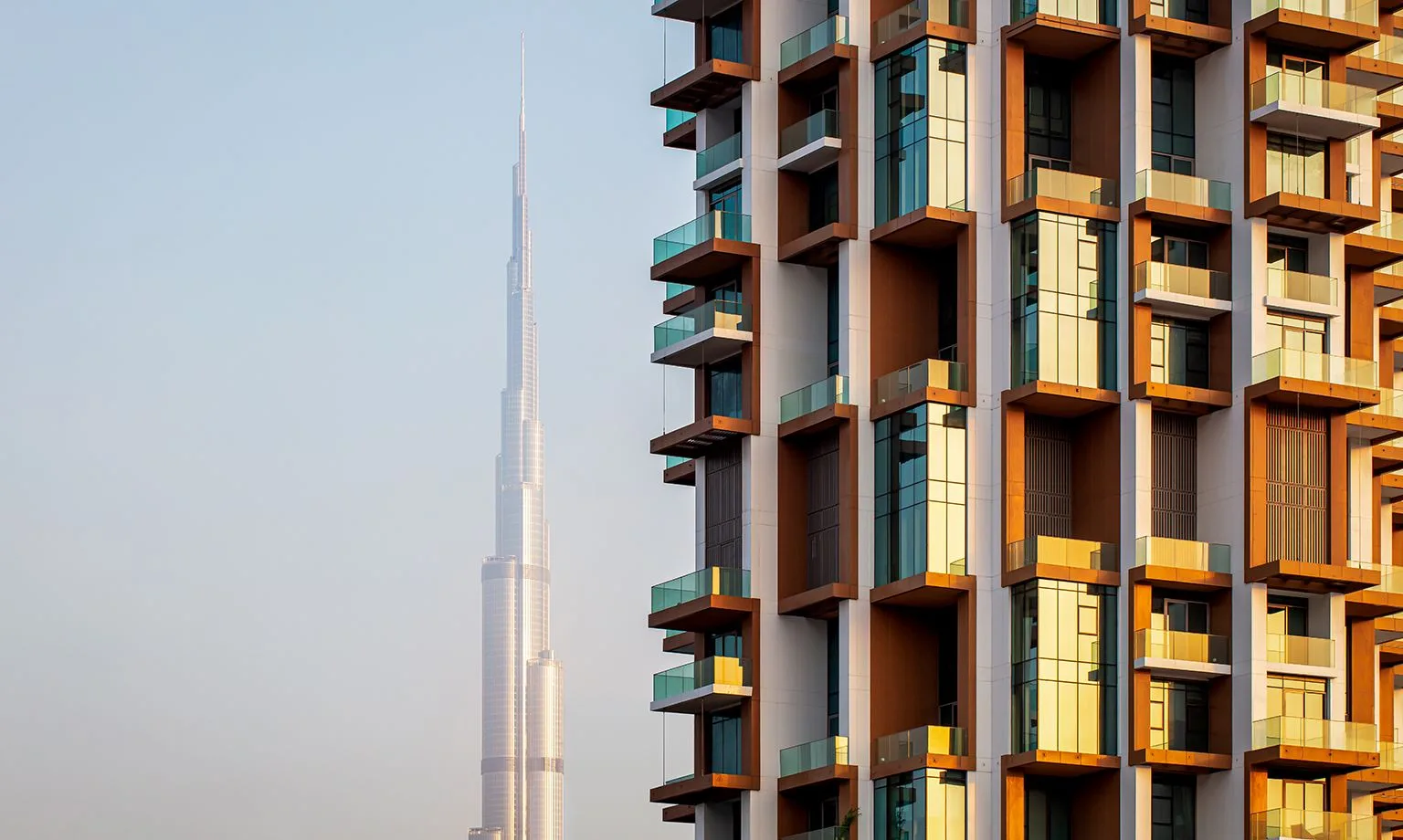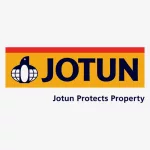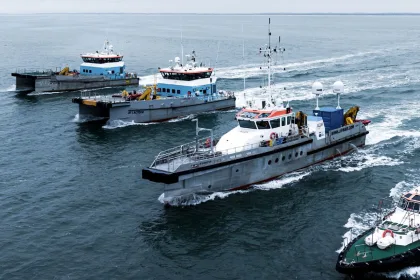We speak to Alastair Common, Technical Director at Schüco Middle East, about the company’s unique and innovative position as a leading supplier of residential and commercial façade systems from the UAE.
BUILDING LIKE THERE’S NO TOMORROW
The Middle East is a regional treasure trove of architectural works, ranging from historic monuments to hyper-modern high-rises sporting the latest systems and technologies.
With such a large industry, rapid regional growth, and the high investment in urban development, there are a multitude of players that operate in the various sectors of the construction space bringing buildings to life.
One such player is Schüco Middle East (Schüco ME), part of the globally renowned Schüco International (Schüco). Schüco is one of the leading suppliers of high-quality window, door and façade systems made from aluminium, PVC-U and steel. Millions of Schüco products are used all over the world and meet the highest requirements of design, comfort, security and energy efficiency, making the company stand out when it comes to performance and quality, backed by an environmentally-centred mission.
Sustainable innovation is at the core of the company, and echoes throughout its many branches such as Schüco ME, bringing the best of structural design practices to the market.
“The Middle East is one of our most important markets and is a region of impressive development at the moment,” introduces Alastair Common, Technical Director at Schüco ME. “We have expanded significantly since the end of 2020, moving our UAE headquarters to the Dubai Airport Freezone, in an office twice the size to provide more operational capacity and industry possibilities.”
The office boasts a product showroom as well as a new warehouse close by located in Sharjah International Airport Freezone, the with the warehouse marking Schüco ME out as the largest tenant in the zone.
“Our showroom is highly advantageous for us,” Common says. “Our industry is very much one where the customers like to see and test the products first hand, and so being able to offer them this opportunity is a great way to progress business and make sure they find what they are looking for. This in-person experience has a completely different impact and has been very positive for us.”
Meanwhile, Schüco ME’s warehouse covers approximately 9,000 square metres (m2) together with an employee training centre and a new Grid2Shell production facility, the latter of which is the reason Schüco ME stands ahead of many others in the industry.
THE HEART OF INNOVATION
Schüco’s Grid2Shell system is an easy-to-plan, plug-and-play modular system, with a self-supporting plug system. The high-strength, aluminium-alloy load-bearing profiles are easily connected to specially fabricated node units without complex welded joints. This self-supporting aluminium/glass construct can be used as a complete curtain wall as well as an all-glass skylight construction, depending on the project and desires of the client.
Triangular or polygonal module units can be used to create individual shapes for the building envelope, and there exists the option to have the vertical façade plane transition into the roof which gives rise to particularly unique building shapes.
What makes Schüco’s Grid2Shell system so unique, however, is that it is one of a kind in the market. Where there are comparable systems that make use of steel, there are no other industry players that utilise aluminium and the corresponding advantages.
“There are several professional and specialist fabricators that use steel systems similar to ours, and there are of course pros and cons to using either metal, but the quality that you receive from aluminium is definitely superior to what you receive from steel,” Common explains.
“The Grid2Shell system is an industry game changer and one that we take much pride in. The option of an aluminium system gives Schüco a stand-out position in the market, further helping to open the doors for customers and clients looking for a specific specialist product. It is something very unique to Schüco globally, not just our operations in the Middle East.”
The Grid2Shell system embodies the company’s innovative spirit and exists as the only system Schüco strictly produces itself (outside of its traditional supply chain), utilising a CNC machine to cut the system’s nodal elements from solid blocks of aluminium.
Due to the way the Grid2Shell system works regarding its nodal elements, designers are given the advantage of parametric freedom within the system. According to Common, Schüco has to machine the pieces at its own facilities as the exact geometry of those nodes is dictated by the company’s 3D models. These pieces are then supplied to customers in the region and internationally.
“We are seeing a lot of success from the system. Not only is it a leading offer in the market, but it also showcases Schüco’s prowess in the industry, the company’s innovation, and its ability to come up with new systems,” he continues.
“There is only so much you can do with a curtain wall or a door for example, so innovation in these areas is limited. Grid2Shell gives consultants, clients, and architects the possibility to create something parametric that is within the system, and that’s not easily achievable.”
BUILDING THE KINGDOM
The success of Schüco’s Grid2Shell system is plain to see in its multiple projects spanning the region. One such location is Saudi Arabia, an area of focus for the company moving ahead. Schüco ME recently secured one of the largest projects in its history that is to be based in the kingdom, a huge skylight in Jeddah of around 25,000m2 that will utilise the company’s Grid2Shell system.
“This is a massive project and it represents a new kind of scope for us,” Common tells us. “We have multiple Grid2Shell projects happening in the UAE, but this project in Jeddah is by far the biggest.
“It’s a key strategic system for Schüco. The development of setting up the production facility in Sharjah was a significant investment and we don’t make that kind of investment without a solid long-term plan. This one in Jeddah should be the first of many of these types of skylights in the Middle East.”
Saudi Arabia holds such promise for the company that Schüco ME is currently in the process of opening a regional headquarters in the country. With a full-time team based in Saudi Arabia, the company is readying itself to take advantage of the country’s short, medium, and long-term potential.
“Saudi Arabia is a very important market for us,” Common says. “There will certainly be growth in the kingdom for Schüco, especially with the amount and sizes of the projects that have been and continue to be announced. We must have boots on the ground in the kingdom itself.”
Schüco ME is also working on a 2,000m2 skylight in Abu Dhabi, having already completed skylight projects in Dubai and Palestine, making its Grid2Shell system a real key strategic product that provides a unique selling point for the business.
BRANCHING OUT
Where Schüco’s Grid2Shell system is its core offer in the market, the company has also expanded to offer further products in the industry, and localised development is a key part of this.
Schüco’s international presence includes its production facilities in Germany that produce a number of the company’s standard systems. However, for Common, supplying these systems from Schüco’s German facilities, those that meet the needs of the company’s European customers, are often not suitable for clients based in the Middle East due to pricing. In the face of this, developing systems local to the region provide huge benefits for Schüco ME and its customers.
“What’s important for us at Schüco ME, and one of the reasons we have been very successful over the years, is our local development,” he says. “In 2022, 40 percent of our annual turnover came from locally developed systems, such as unitised curtain walls, sliding doors, and balustrades. We previously had very little business in the latter, even in other company branches such as Schüco Germany, as traditionally balustrades have been too heavy and expensive for our market.”
However, the company has now been focusing on glass balustrades since the end of 2021, and Schüco ME has expanded its professional team to bring on board a key member for the express purpose of focusing on the balustrade business segment. Where previously Schüco ME had zero activity in the sector, today the company offers 13 different variants of balustrade systems that range in their glass thickness and application. This gives Schüco ME a huge advantage to offer customers multiple different choices depending on their particular site, situation, location, thickness and height of the glass.
“Another advantage of this business segment is the simplicity of balustrades; we work with glass, and the projects are far simpler than a sliding door system, for example,” Common adds. “This makes our balustrades easier to carry out as there are only around half a dozen components in this kind of system. Because of this simplicity, we are able to sell the systems to traders who can sell them on, providing continual business from that area alone which is something we cannot do with doors and windows because of their fabrication requirements and authorisation, and to make sure they are installed correctly.
“Balustrades do not have that same level of intricacy, so that was a completely new market for Schüco to dive into. In 2021 we had nothing to show regarding balustrades, and by the end of 2022 we had generated €3.5 million – a massive boost for us from something we did not have before.”
Without question, balustrades have been a critical addition to Schüco’s development over the past few years and have allowed the company to adapt to the varying demands of its client base, fulfilling their needs to successfully deliver a large number of different projects.
This recent and lucrative business segment highlights Schüco ME’s continued position as a professional and unique player in the industry, one defined by its innovative spirit to help build a better tomorrow.
Q&A WITH ALASTAIR COMMON, TECHNICAL DIRECTOR, SCHÜCO ME
How have global events impacted Schüco ME in recent years?
Alastair Common, Technical Director: “There was a definite shift for the company over the course of the COVID-19 pandemic from the commercial to the residential market. The pandemic period was very tough with a definite slowdown on commercial projects, yet fortunately, due to our portfolio of systems, we were able to remain afloat in the residential market. There were more villa projects proportionally to high-rise projects.
“After the influx of business caused by Dubai Expo 2020 (held in 2021), an expected downturn period was instead marked by a surprising continuation of project demand for Schüco ME. The UAE construction and façade market remains healthy, even with the ongoing Russia-Ukraine conflict in Europe.
“There has been a substantial influx of people to the UAE in recent years, and part of this has to do with the war in Ukraine. This has meant that the construction industry has had to respond to the growing number of people moving to the country, meaning more projects and investments for more companies.”































